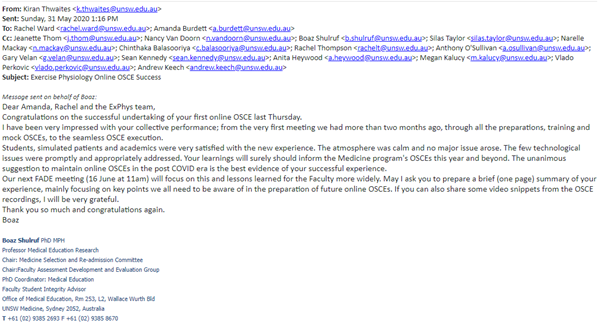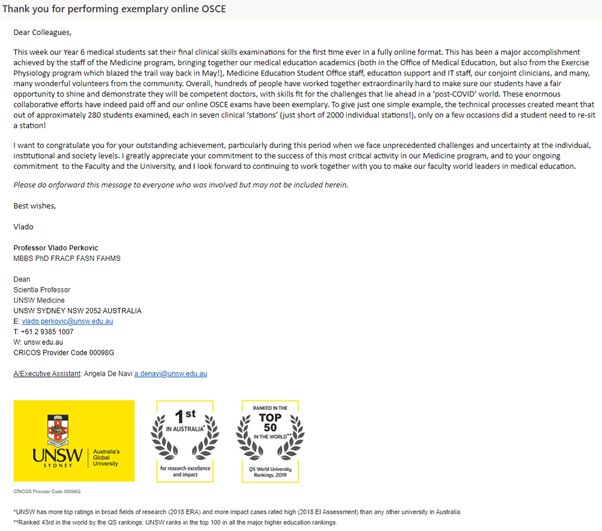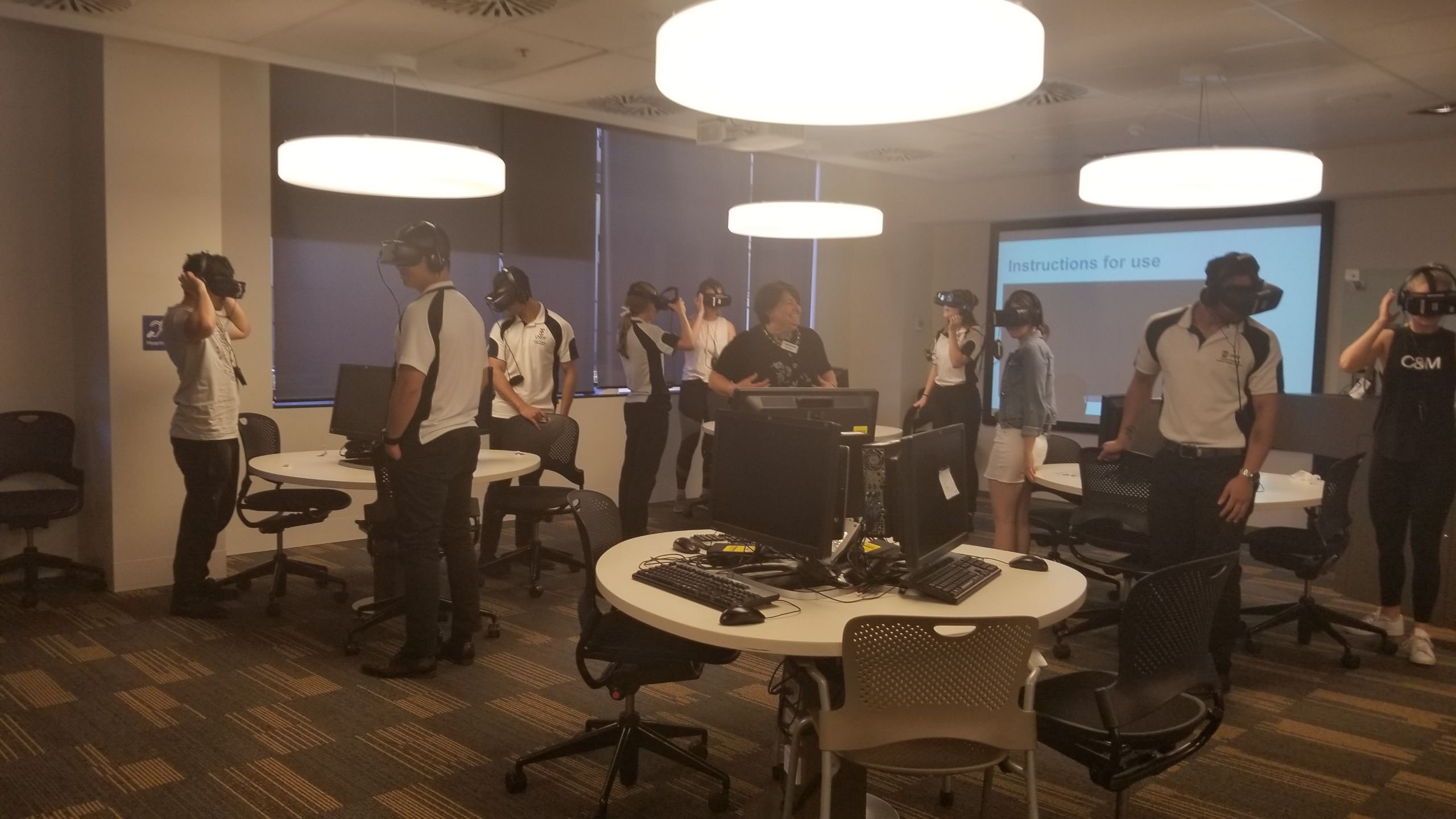Initially starting with UNSW in 2016 as a professional staff member, my role was split between organising external practicum placements for our final year students and supervising our students directly within one of those placements at UNSW's own 'The Lifestyle Clinic'. Initially when starting at the clinic, we had weekly meetings with the students where clinicians would stand at the front of the room and present new cases and weekly content in didactic lecture style. I remember these as a student being quite helpful, however the groups were smaller then and with the increasing numbers, students were disengaged, didn't seem to absorb the content and weren't getting the practical skills they needed to develop. After seeking input from the students, I re-developed both the content and the structure of the meetings so they were student lead. Physical skills practice with immediate feedback from supervising clinicians was also incorporated into the meetings. I also engaged SME's from various areas such as mental health and chronic pain to come in to present to the students, and arranged for Dementia Australia to provide a virtual reality experience as a part of these meetings.
In 2017, I was asked to be involved in the development of the Clinical Workplace-Based Assessments (CWAapp) using a SEIF grant awarded to the faculty. My role was to develop the Exercise Physiology specific competencies which were to be added to the app. These competencies are used by students in their clinical assessments whilst on placement, where their supervisors provide an assessment of and feedback on their competence in a variety of necessary clinical skills. Since its original development on the eMed platform, after student, supervisor and convenor feedback, I have since switched this over to MS Forms for a more user friendly experience for all.
As an accredited university with our governing body, ESSA, our recent re-accreditation saw the introduction of several new courses and adaptation of others. I assisted with the development of the practicum component of HESC3501 Advanced Exercise Science, building in external placement experience to better prepare students for their final year placements. I also linked SME's with course convenors for HESC4502 Workplace Rehabilitation and HESC3581 Exercise Prescription in Diverse Populations to get industry relevant content and experiences specific for those courses.
In September 2019 I switched to an academic role, convening two courses, HESC4611 Clinical Practicum A and HESC4622 Clinical Practicum B. Student feedback has dramatically changed the course structure of both, now with an introductory lecture and weekly tutorials being implemented based on a reported student need. Even since they started in T1 this year, we have changed the structure each term to meet student needs (1).
I have also successfully implemented the Mental Health First Aid course during our HESC4611 Clinical Practicum A course, after identifying that our students weren't equipped to deal with the often complex mentally unwell clients they were coming across during their placements.
Perhaps my biggest teaching challenge so far has been our online OSCE. The onset of COVID-19 forced the re-design of our Objective Structured Clinical Exam (OSCE) to online format. I led our Practicum Team in collaboration with leading clinical educators from the Medicine Program, to convert our OSCE into digital assessment. Our tutorials were reconfigured to familiarise students with the MS Teams platform which we intended to use for the exams, before being given the opportunity to practice in the new exam format. The conversion was deemed such a success, that it was used as a basis for the Medicine program's online clinical exams later in the year.
1. Fibbins, H., Ward, P., Stanton, R., Thom, J., Burdett, A., Lederman, O., & Rosenbaum, S. (2020). Australian exercise physiology student attitudes and knowledge towards people living with mental illness. The Journal of Mental Health Training, Education and Practice.







